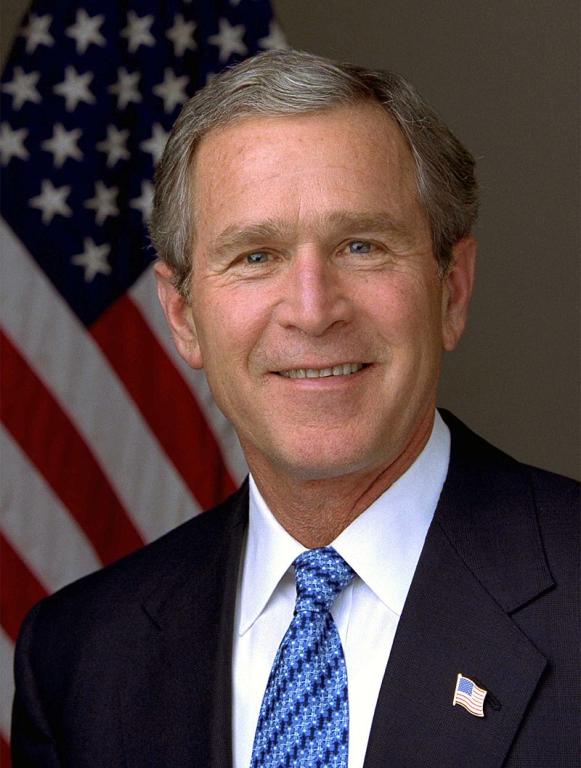
I recalled the signs featuring former U.S. President George W. Bush, as I read and watched his speech today about the current state of America: “Miss Me Yet?” His speech led me to answer in the affirmative. I miss him. I also miss democracy.
Here are a couple of quotes from President Bush’s speech:
“We’ve seen nationalism distorted into nativism, forgotten the dynamism that immigration has always brought to America… “We see a fading confidence in the value of free markets and international trade, forgetting that conflict, instability and poverty follow in the wake of protectionism. We’ve seen the return of isolationist sentiments, forgetting that American security is directly threatened by the chaos and despair of distant places.”
“Bullying and prejudice in our public life sets a national tone, provides permission for cruelty and bigotry and compromises the moral education of children.”
“Bigotry or white supremacy in any form is blasphemy against the American creed.”
While not turning a deaf ear to the anger of people who are angered by globalizing forces, Bush claimed we cannot and should not try to put a stop to globalization. A globalized world is inevitable. Thus, a significant effort must be made to help those who feel swept along and overwhelmed by globalizing forces, even while preparing for the realization of the globalized age.
What does it mean to make America great again? Protecting the interests of native-born people over immigrants and denying them access, or the interests of white Americans over those of other skin hues? Does it mean bullying and ridiculing those who stand up against what they see as oppression, resorting to sound bites and tweets for public discourse, and deriding and undermining the free press by calling it fake news whenever it speaks critically?
Earlier this year, Bush spoke out on the importance of a free press, which holds a nation’s political leaders to account: “I consider the media to be indispensable to democracy… We need an independent media to hold power to account. Power can be very addictive and it can be corrosive and it’s important for the media to call to account who abuse their power.” Given how harsh the criticisms of Bush as President were at times, it speaks to his love of America’s ideals that he would welcome such accountability.
Bush fears the deterioration of our democratic ideals and processes. Central to the democratic way of life is that its leaders make themselves accountable to the people. After all, it is as President Lincoln claimed in The Gettysburg Address a “government of the people, by the people, for the people,” which he believed “shall not perish from the earth.” Bush, Lincoln and Washington all cherished our democratic ideals. Washington loved this new democracy so much that he resigned his post as Commander in Chief of the Continental Army. Where might this country be if he had not? In recounting the profound significance of this symbolic gesture, one account reads,
Washington’s willingness to return to civilian life was an essential element in the transformation of the War for Independence into a true revolution. During the war, Congress had granted Washington powers equivalent to those of a dictator and he could have easily taken solitary control of the new nation. Indeed, some political factions wanted Washington to become the new nation’s king. His modesty in declining the offer and resigning his military post at the end of the war fortified the republican foundations of the new nation.
One can fight Washington (D.C.) all one wants as an outsider, but that does not make one a populist. A politician’s respect for all people of the commonwealth, not simply those native to it and of European descent, respect for the various branches and agencies of the government, as well as respect for accountability with the press tells us how populist a President is. Bush might not have been the most popular of Presidents in certain circles, but his reflections on our democratic values, what’s at stake today, and his example as an authoritative statesman, lead me to miss him, and to long for those cherished ideals.












